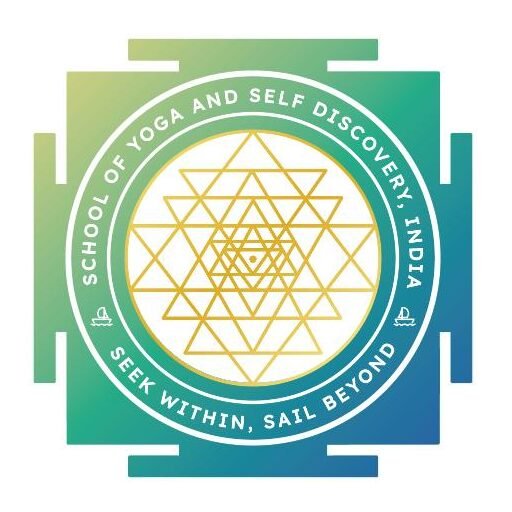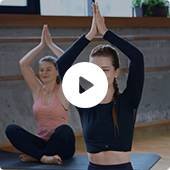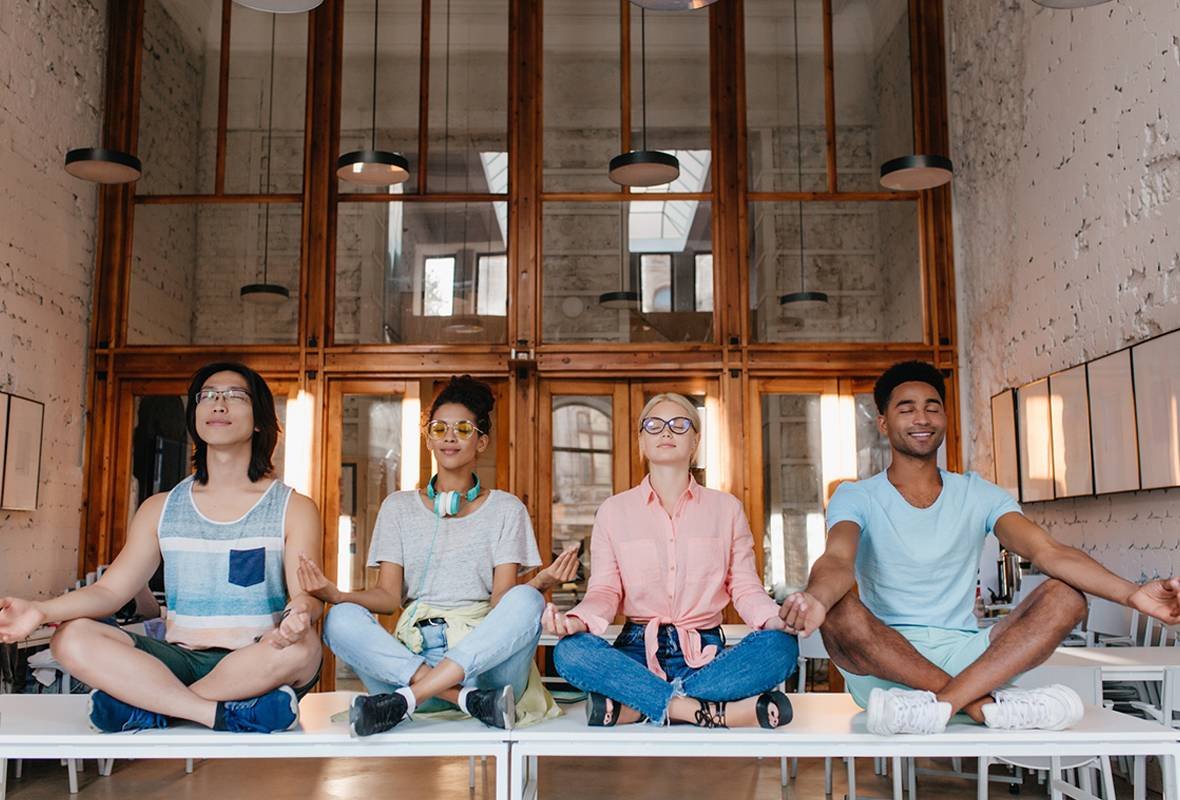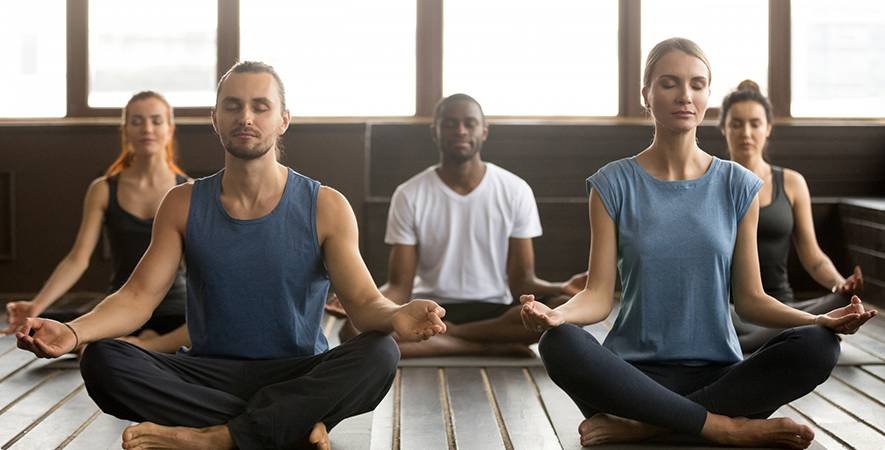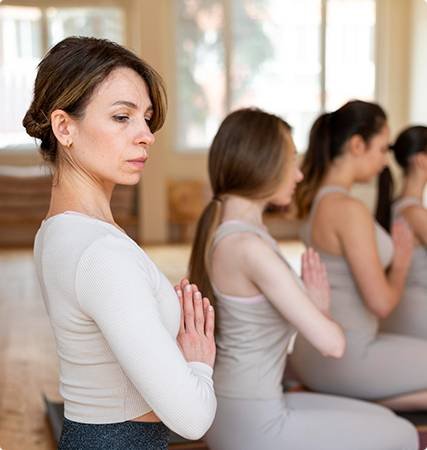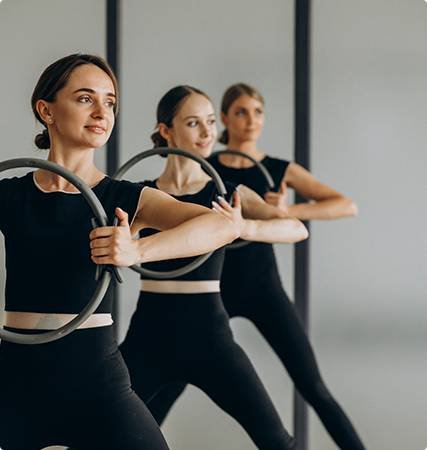Yoga Training Certification
INTERNATIONALLY CERTIFIED YOGA TEACHER TRAINING - YOGA ALLIANCE

Margie Dose
Web Developer
“Morbi neque nisi, tincidunt nec erat vitae, viverra porttitor lorem. Fusce tempor nunc at luctus blandit. Donec eget fermentum magna.we dedicate financial on services the teams serve all Curabitur ac tortor ante. Sed quis dignissim”

Jone Walker
Web Designer
“Morbi neque nisi, tincidunt nec erat vitae, viverra porttitor lorem. Fusce tempor nunc at luctus blandit. Donec eget fermentum magna.we dedicate financial on services the teams serve all Curabitur ac tortor ante. Sed quis dignissim”

Dose Robot
Web Developer
“Morbi neque nisi, tincidunt nec erat vitae, viverra porttitor lorem. Fusce tempor nunc at luctus blandit. Donec eget fermentum magna.we dedicate financial on services the teams serve all Curabitur ac tortor ante. Sed quis dignissim”

Jone Walker
Web Designer
“Morbi neque nisi, tincidunt nec erat vitae, viverra porttitor lorem. Fusce tempor nunc at luctus blandit. Donec eget fermentum magna.we dedicate financial on services the teams serve all Curabitur ac tortor ante. Sed quis dignissim”

Margie Dose
Web Developer
“Morbi neque nisi, tincidunt nec erat vitae, viverra porttitor lorem. Fusce tempor nunc at luctus blandit. Donec eget fermentum magna.we dedicate financial on services the teams serve all Curabitur ac tortor ante. Sed quis dignissim”

Jone Walker
Web Designer
“Morbi neque nisi, tincidunt nec erat vitae, viverra porttitor lorem. Fusce tempor nunc at luctus blandit. Donec eget fermentum magna.we dedicate financial on services the teams serve all Curabitur ac tortor ante. Sed quis dignissim”
The Role Of Yoga Teacher Training Programs In Transforming Lives?
The Science of Yoga
As yoga spreads across the world, more people are turning to ancient wisdom for answers to modern-day challenges. From fitness to the urge of transcendence, scientific research continues to uncover yoga’s deep impact—not just on physical health but on mindfulness, emotional balance, and overall well-being. Despite the rising popularity of yoga, yoga is still being practiced in silos as a form of physical exercise rather than in its true holistic form. Yoga Teacher Training in India offers that rare opportunity that subjects one to pursue and understand Yoga in its entirety and the sustained practice of almost a month invites deep and lasting impact towards life transformation.
Why Opt For A Yoga Teacher Training In-Person
Online Yoga TTC vs Yoga Teacher Training In-Person
A typical online or hybrid YTTC is focused around asanas and reduces yoga to a physical exercise. These online or hybrid courses endorse that they can certify you to be a yoga teacher but in reality you end up with little understanding, skills and confidence on the subject. Cramming up names of different asanas and just the ability of combining few flow sequences leaves you feeling inadequate as a yoga teacher.
Yoga is more than just a physical practice—it’s the way of life. And the best way to truly experience it is to live it. When you opt for a residential yoga teacher training with us you will not just learn but deeply experience yoga at its core from philosophy to anatomy to pranayama with an intensive curriculum rooted in authenticity and delivered by highly experienced yoga teachers with strong lineage in yoga and meditation. From ancient rituals like hawans and kirtans to cleansing practices like shatkarma, you’ll live the essence of yogic lifestyle and experience deep cultural immersion.
With world-class yogashalas, a swimming pool, sauna, and open-air theatre, every space in our ashram supports your growth, relaxation, and self-discovery. This is your chance to step away from distractions, embrace an authentic yogic lifestyle, and be part of a community that shares your journey. If you're looking for more than a certification—if you're seeking an experience that stays with you long after you leave—our ashram is where it begins.


Yoga Ashram in India
How the space helps your yoga practice
Teaching Faculty & Lineage
The serene ambiance of our ashram is designed to let you detox, relax and unwind
Location & Environment
The ashram incorporates nature in its design and spaces so that you are always connected with mother nature throughout your yoga teacher training
Class Size & Personalized Attention
The design of the yoga ashram as well as the training program allows for digital detox and silent zones are seamlessly incorporated within your journey
Food & Nutrition
The program and ashram focuses on students’ safety and well-being with safety protocols considered paramount in our facilities.
Curriculum & Practical Experience
Our hospitality expertise and focus on health and hygiene ensures cleanliness & hygiene at all times so that you have a carefree yoga immersion in India.
Authentic Immersion
From hawans to kirtans to shatkarma in open fields, each class and activity is designed to give you the utmost authentic and cultural immersion
Yoga Teacher Training in India – Why the roots matter?
Differences in YTT Across Countries: Authenticity vs. Commercialization in YTT
Yoga has evolved into countless styles worldwide—Hot Yoga, Yin Yoga, Restorative Yoga, Iyengar Yoga, Kundalini Yoga, Bikram Yoga, Aerial Yoga, Acro Yoga, and many more. While globalization has made yoga accessible, it has also led to commercialization and dilution, often reducing it to a mere fitness trend.
India, the birthplace of yoga, offers something different—a connection to its origins. Here, yoga isn’t just about flexibility or strength; it’s a way of life, a journey inward. Rooted in ancient wisdom, traditional yoga in India follows the path laid out in Patanjali’s Yoga Sutras, embracing all eight limbs of yoga, not just the physical postures.
Training in India means learning yoga as it was meant to be practiced—not just in studios, but in daily life. It means immersing yourself in teachings from the Vedas, the Bhagavad Gita, and other sacred texts that hold the true essence of yoga. It’s about experiencing authentic guidance, spiritual depth, and an environment where yoga isn’t just taught—it’s lived.
If you’re looking for more than just a certificate—if you seek transformation, wisdom, and a deeper connection to yourself—then India is where your journey truly begins.
The History and Evolution of Yoga in India
The history of yoga in India dates back thousands of years and has evolved through multiple stages, deeply intertwined with spiritual, philosophical, and physical disciplines. At our ashram, we honor this timeless lineage, offering an immersive space where you don’t just learn yoga—you live it, experience its depth, and connect with its authentic essence.
3000-1500 BC
Pre-Vedic & Indus Valley Civilization
Archaeological evidence from the Indus Valley Civilization (Mohenjo-Daro and Harappa) suggests early practices resembling yoga.
1500-500 BC
Vedic Period
The Vedas describe rituals, mantras, and meditative practices used by rishis (sages) to attain higher consciousness. The concept of tapas (inner heat or discipline) and meditative absorption began to take shape.
800-200 BC
Philosophical Development
The Upanishads, which are philosophical texts associated with the Vedas, introduced more refined concepts of yoga, including self-realization (Atman), Brahman (universal consciousness), and moksha (liberation). The Bhagavad Gita (circa 500 BCE) classified yoga into three paths:
Karma Yoga (yoga of action), Bhakti Yoga (yoga of devotion), and Jnana Yoga (yoga of knowledge).
200 BC
Classical Period – Patanjali’s Yoga Sutras
The Yoga Sutras of Patanjali, written around 200 BCE, systematized yoga into a structured path known as the Eight Limbs of Yoga (Ashtanga Yoga), which include ethical guidelines, physical postures, breath control, concentration, and meditation leading to samadhi (enlightenment). This period emphasized Raja Yoga, the path of mental and spiritual discipline.
100 BC
Medieval Period – Rise of Hatha Yoga
During this era, Hatha Yoga emerged as a more physical and practical system of yoga, focusing on asana (postures), pranayama (breath control), mudras (gestures), and bandhas (energy locks). The foundational texts, that laid the foundation for modern yoga postures and practices include:
Hatha Yoga Pradipika (15th century), Gheranda Samhita, and Shiva Samhita.
19th – 20th AD
Colonial & Modern Period
During British colonial rule, yoga saw a decline, but it was revived by modern spiritual leaders like Swami Vivekananda, who introduced yoga to the West in 1893 at the Parliament of the World’s Religions. The 20th century saw further development by influential yogis, who helped popularize yoga worldwide, focusing on both physical postures and spiritual aspects, like:
T. Krishnamacharya (father of modern yoga), B.K.S. Iyengar (Iyengar Yoga), Pattabhi Jois (Ashtanga Yoga), and Swami Sivananda (Sivananda Yoga)
IS YOGA A RELIGION?
Yoga is deeply spiritual and philosophical in nature and does not require belief in any particular deity, scriptures, or religious dogma & shouldn’t be associated with any religion be it Hinduism, Buddhism, Jainism or any other. Yoga’s origins are found in ancient Indian scriptures which discuss yoga as a means of attaining self-realization, balance, and liberation (moksha). While these texts are associated with Hinduism, they do not prescribe yoga as a religious ritual but rather as a universal path to self-discovery. The principles and practices laid out by Sage Patanjali in Patanjali Yog Sutras can be followed by anyone, regardless of their religious beliefs. Today, yoga is practiced worldwide for its benefits in physical health, mental well-being, and self-awareness, rather than as a religious practice. While yoga traditions incorporate chanting, mantras, or spiritual philosophy, the practice & philosophy itself remains adaptable to different cultural and personal beliefs.
Yoga offers offers tools for inner balance, mindfulness, and self-awareness, which can complement any religious or non-religious belief system. At our yoga school, we embrace the authentic essence of yoga as a universal practice for self-discovery, healing, and holistic well-being, welcoming everyone, regardless of their spiritual or religious background.









